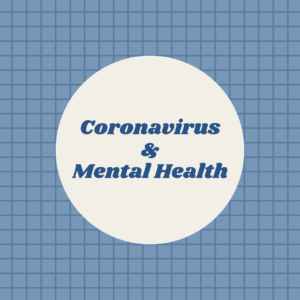Social distancing and stay-at-home measures to combat the COVID-19 pandemic are intended to slow the spread of the virus, but for many Ohioans, these measures can take a heavy toll on their mental health. Fear and anxiety drawn from the pandemic can cause stress for both adults and children. Stress can be more severe if a person loses their monetary and social benefits of employment.
Signs of stress could include fearing for your own and others’ health and safety, changes in sleep or eating patterns, and increased substance use like alcohol, tobacco, or other drugs. Alcoholics Anonymous (AA) and Narcotics Anonymous (NA) meetings as well as in-person counseling sessions have traditionally been avenues to manage addiction. However, social distancing orders have cancelled AA and NA meetings and have limited access to in-person treatment.
In a recent Kaiser Family Foundation poll, 45% of American adults reported that worry and stress related to COVID-19 has caused negative impacts to their mental health. Even without stressors related to a global pandemic, research links loneliness and social isolation to poor mental health while job loss is associated with increased anxiety, low self-esteem, distress, and depression. Such reactions are likely increased during economic depressions, natural disasters, and pandemics and are more pronounced in populations who have limited resources and access to social and health services. These reactions and feelings are normal when people are affected by such abnormal situations like the COVID-19 pandemic.
In Ohio, health officials are concerned that stress caused by COVID-19 will worsen existing mental health conditions, including additional risk for substance abuse. Stress can trigger relapses for those who are in recovery, and social isolation can mean that no one is available to help in the event of an overdose. While behavioral health services are included as “essential healthcare” the COVID-19 emergency has disrupted access to traditional mental health support. In recognition of this challenge, Governor DeWine signed an order to make telehealth more accessible. Many behavioral health providers are taking advantage of this new authority and reaching out to people in need throughout Ohio. There are also a variety of help lines accessible with a phone call or text message.
The Ohio Department of Mental Health and Addiction Services (OhioMHAS) has established a help line and provides other resources to help Ohioans find treatment and get information.
- Ohioans can call the Covid Careline at 1-800-720-9619, text 4HOPE TO 741741, or go to https://findtreatment.gov.
- Other resources include the Disaster Distress Helpline which can be reached by calling 1-800-985-5660 or by texting TalkWithUs to 66746.
- The Suicide Prevention Hotline can be reached at 1-800-273-8255.
We are in this together Ohio. Let us keep our family and neighbors mentally healthy and safe too.

